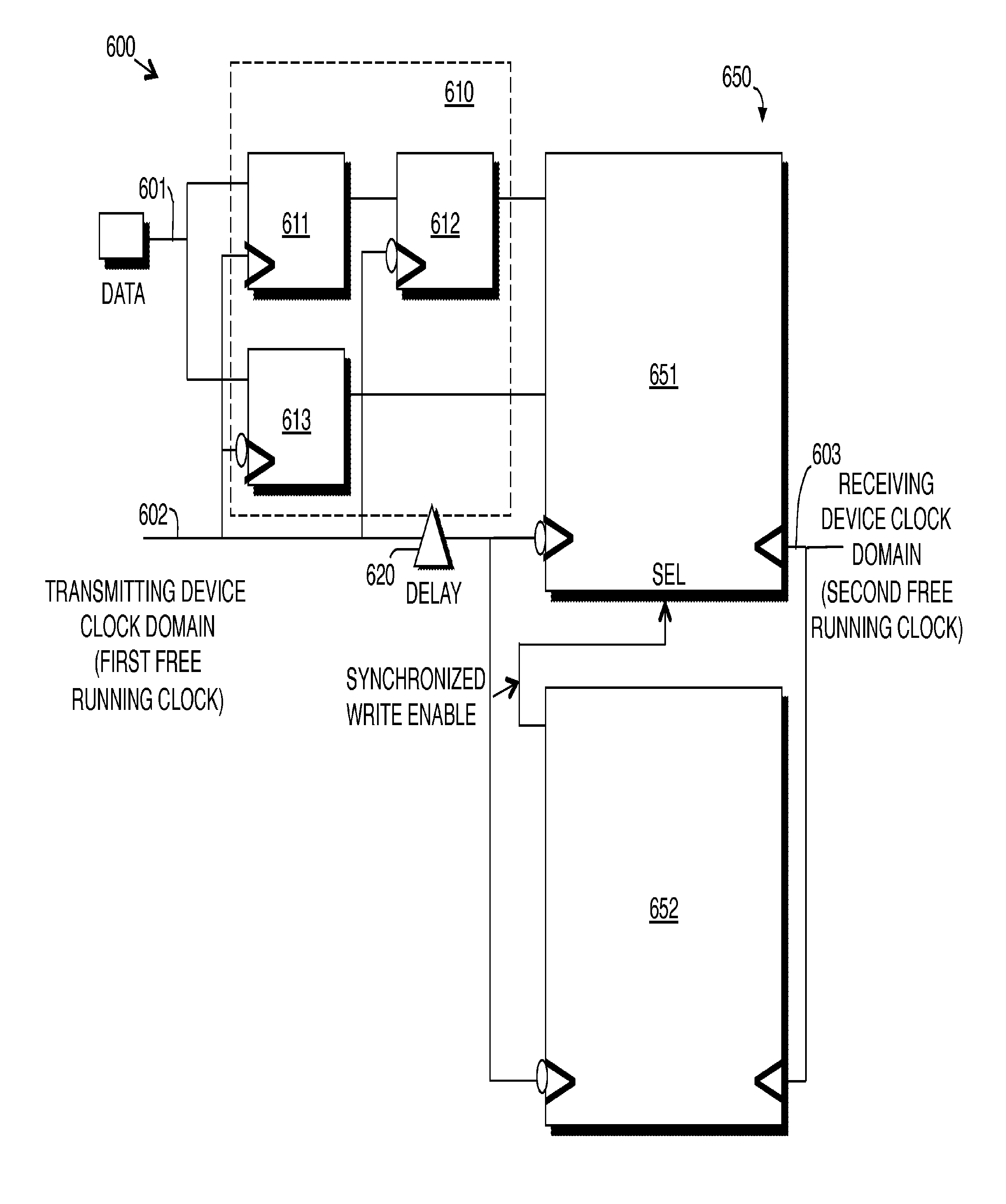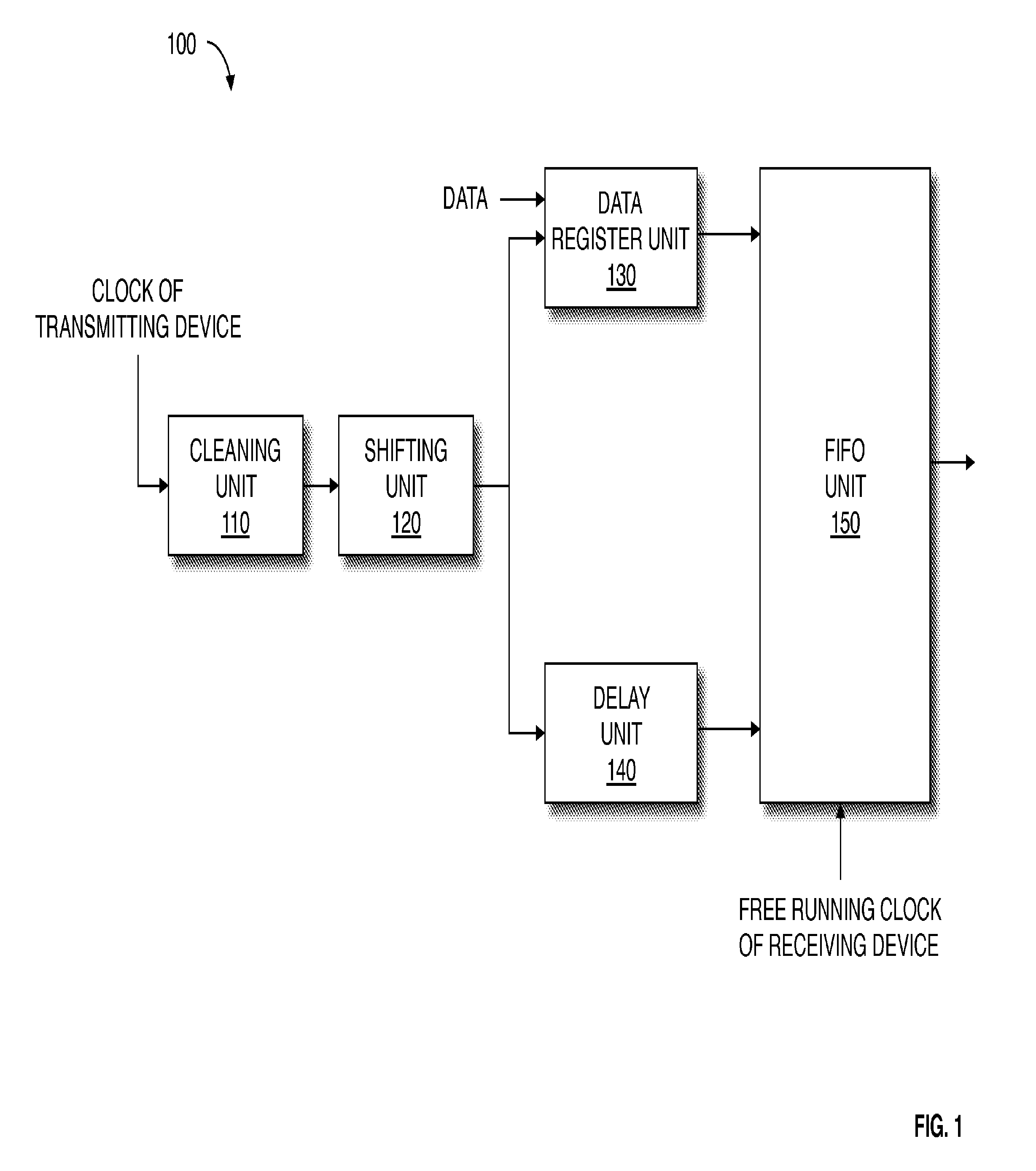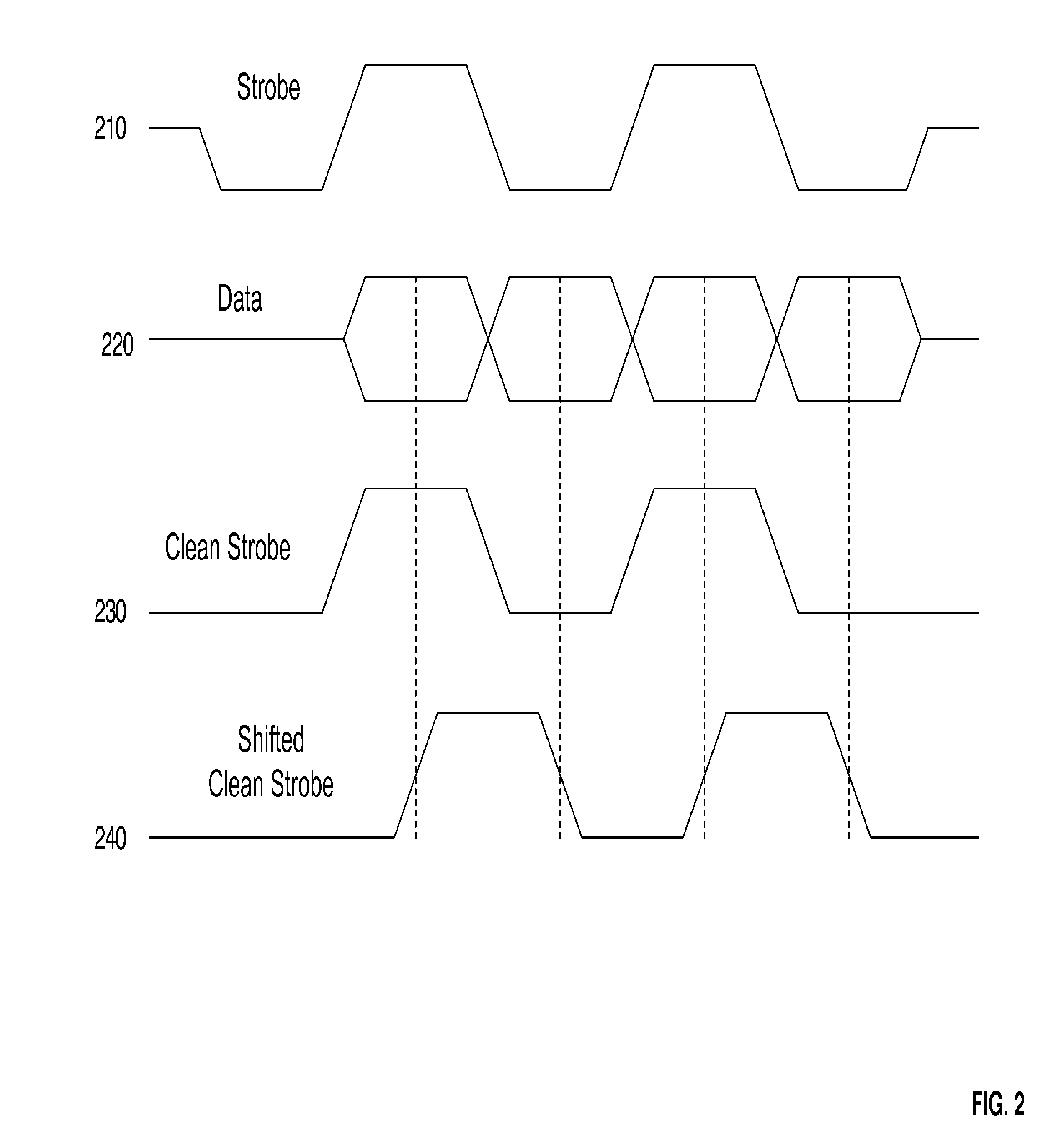Method and apparatus for source-synchronous capture using a first-in-first-out unit
a source synchronous capture and buffer technology, applied in the direction of synchronisation signal speed/phase control, instruments, generating/distributing signals, etc., can solve the problem complexity of hardware needed to support dynamic delay calibration, and additional complexity of controller logic to keep. the effect of avoiding timing marginality
- Summary
- Abstract
- Description
- Claims
- Application Information
AI Technical Summary
Benefits of technology
Problems solved by technology
Method used
Image
Examples
Embodiment Construction
[0019]In the following description, for purposes of explanation, specific nomenclature is set forth to provide a thorough understanding of embodiments of the present invention. It will be apparent to one skilled in the art that specific details in the description may not be required to practice the embodiments of the present invention. In other instances, well-known circuits, devices, and components are shown in block diagram form to avoid obscuring embodiments of the present invention unnecessarily.
[0020]FIG. 1 is a block diagram of a source synchronous capture unit 100 according to an exemplary embodiment of the invention. The source synchronous capture unit 100 may be used at a receiving device to capture source synchronous data from a transmitting device and to synchronize the data to a receiving device clock. The source synchronous capture unit 100 can support source-synchronous communication standards, such as double-data-rate (DDR), that do not send a free-running clock along...
PUM
 Login to View More
Login to View More Abstract
Description
Claims
Application Information
 Login to View More
Login to View More - Generate Ideas
- Intellectual Property
- Life Sciences
- Materials
- Tech Scout
- Unparalleled Data Quality
- Higher Quality Content
- 60% Fewer Hallucinations
Browse by: Latest US Patents, China's latest patents, Technical Efficacy Thesaurus, Application Domain, Technology Topic, Popular Technical Reports.
© 2025 PatSnap. All rights reserved.Legal|Privacy policy|Modern Slavery Act Transparency Statement|Sitemap|About US| Contact US: help@patsnap.com



